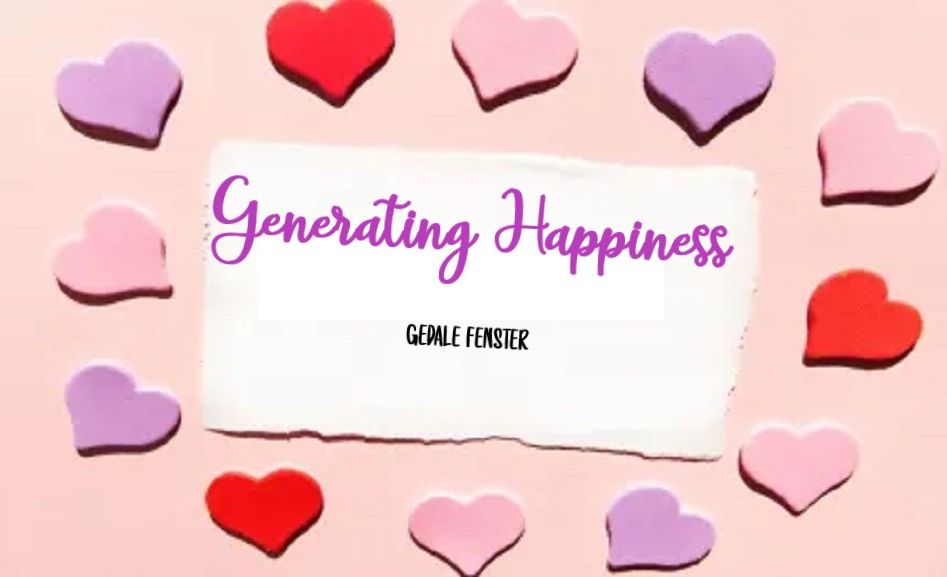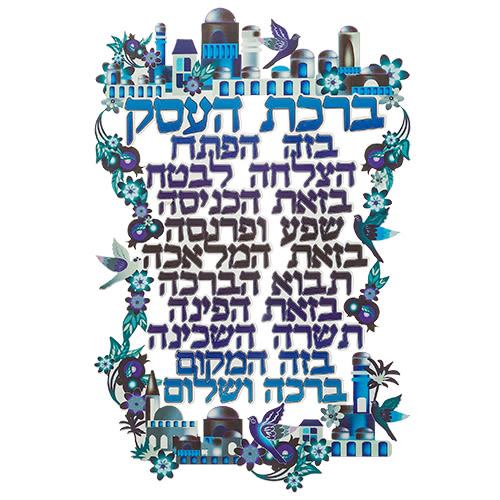
My First Fight in Hebrew
This is what I love about Israelis; my friend loved me enough to teach me how to converse with him in Hebrew at the same time that he was angry with me...

This morning was Shabbat and when I got home from praying, I was in a very good mood: I told my wife that I had just had my first “fight” in Hebrew.
“What happened?” my wife asked. “Oh nothing terrible” I answered. “It was just that I saw a friend of mine (who doesn’t speak English) walking to shul (synagogue) and he didn’t look very happy. I was shocked because he didn’t acknowledge my greeting. He didn’t even look up to say “good Shabbos” back to me. Instead he just kept walking…
“How do you feel today” I ventured (with my limited Hebrew vocabulary). His answer surprised me. He said: “I don’t love it when people ask me how I’m feeling. People should not ask each other how they are feeling.” Surprised, I backed off because he’s always been patient. Believe me, if he puts up with my Hebrew (which he has in the past) he has a kind and patient nature.
I said I was sorry for asking him how he felt, that I certainly didn’t intend to upset him. He said: “You shouldn’t ask a person how he feels. You should talk to him about happy things, positive things. If you ask a person how he feels that it could make him sad.” I apologized again: “Please forgive me. You know that I  don’t express myself very well in Hebrew – my vocabulary is limited. It must be that I’m so conditioned to asking people how they feel all week because I’m a psychotherapist – I meant no harm.” He smiled…
don’t express myself very well in Hebrew – my vocabulary is limited. It must be that I’m so conditioned to asking people how they feel all week because I’m a psychotherapist – I meant no harm.” He smiled…
This is what I love about Israeli people – they just tell you what they think. He said: “If you want to be my friend – be my friend – not my psychologist. Speak to me about nice things, not about what I’m feeling!” Wow, what amazing honesty, I thought: “He’s even admitting that he needs to deny his feelings!”
But the most amazing thing about my “first fight in Hebrew” (and this is what I told my family at the Shabbos table): The entire time that my friend was “angry” with me he was also helping me speak Hebrew properly. In other words, he still loved me enough to teach me how to converse with him in Hebrew at the same time that he was angry with me because he knows that I’m working harder lately to speak a better Hebrew.
There isn’t an English word to describe how a man can be angry and loving at the same time. I later wondered where his power to do this came from, and I realized it was from the power of a very deep simplicity that you often find in Israeli people. It is a childlike simple pure directness that is full of innocence and willingness to be “vulnerable.” His willingness to be vulnerable enabled him to stay connected to me even when he wanted to knock my block off. In Hebrew this power of simplicity is called temimus. Without the pure, innocent trust that we had as children, we can’t trust in G-d and in people.
By the time we reached the shul we were smiling and sharing more words of Torah. I also had a new respect for my friend. In his own way he had shared with me that he suffers from depressed feelings that he was not ready to confront and deal with directly, and that I need to be more careful in the future to not “remind” him of his pain. There was a time when I would have judged him improperly. I would have thought that it was wrong for him to cover up his feelings. Repression is no good. Feelings are not to be denied – they must be felt and processed. But that’s not true for everybody. For some, it’s not the right path. He let me know that about him and continued feeling positively about me and had emuna that I would back down and not try to further psychoanalyze him.
Before we said good-bye we shared more Torah thoughts with each other. He asked me what the word netzach means in English. I told him it means “victory” but that there really wasn’t an equivalent word for netzach in English because netzach is an eternal victory – a victory that has no end. When a person knows that he will live forever he feels “victorious.”
Sadness only comes when we think that something is going to end. What my friend was telling me is: “If you really want to help me with my sadness, speak to me about lasting values like our commitment to Torah and to Hashem…talk to me about the sweetness of the world to come…these are the subjects that will give me life.”
If you listen to your friends and family they will also educate you about their path to happiness.











Tell us what you think!
Thank you for your comment!
It will be published after approval by the Editor.